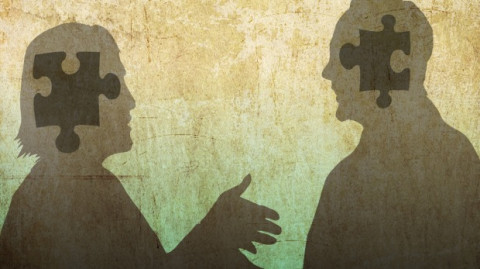
Amy Smith
- 'I love my son': Blacktown mother speaks out about restraining son with autism in chains
- Why I'm glad to discover I'm autistic
When it was reported that a Blacktown mother had been accused of chaining her autistic son to a bed, chief executive of Autism Awareness Australia Nicole Rogerson urged the community to show compassion to the mother for her desperate situation.
"I am the parent of a child with autism, so I obviously view it that way, and I think there's a bigger story here. I don't think it's black and white. I think we should be grown up enough to have a wider conversation," Rogerson said.

Amy Smith: Early memories are filled with doctors, difficulty at school and non-stop bullying.
But unfortunately the conversation about autism has so far been at the expense of autistic people.
As an autistic person I am very passionate about a wider conversation regarding autism and disability, but there needs to be some changes if we are going to improve the lives of people on the spectrum and their families.
My memories of my childhood are filled with doctors' offices, difficulty with school structure and non-stop bullying from the age of nine. The teachers, while they never condoned the bullying, believed it wouldn't happen so much if I didn't "bring it upon myself". I had no friends from about Year 3 until I left primary school and kids called me such things as "weirdo", "freak" and the ever-charming "social retard". At least once a week I was beaten up.
While I found good groups of friends with the geeks, metal-heads and goths in my high school, I still struggled with the syllabus despite my passion for learning.
Although teachers often described me as bright, report cards were filled with words phrases "however", "could be more attentive", "needs to be a team player", "selective obedience" and "doesn't often complete tasks on time". Despite the fact that I had been reading since age two my grades never got beyond average.
As my family tried to find answers, only to be dismissed by doctors, stress was high in the household. We had no answers or solutions to the very clear problems I was encountering in life. Even though I was struggling with social interactions, sensory processing, meltdowns and difficulty outside set routines, my family was told outright that it couldn't be high-functioning autism because "girls just don't get that".
It came as a huge relief when I was finally diagnosed with autism spectrum disorder at the age of 19. The answers and solutions we had been looking for fell into place. Having a name for what made me who I was empowered me to find those solutions I'd searched for my whole life, as well as connecting with other autistic people.
Since then my confidence has grown and I embraced the thing that made me so different, rather than trying to fit in as I did when I was a child. This led me to become passionate about the neurodiversity movement which seeks to counter and change society's fear of those on the autism spectrum.
I have become aware of how skewed the dialogue has been and how this is adversely affecting autistic people and their families.
For far too long fear of autism has dominated the conversation and I believe Autism Awareness Australia has played a part in that fear. One of their public service campaigns featured famous Australians, such as Michael Caton and Justine Clarke, and spoke of autism in frightening terms. Quotes from the campaign include: "More children will be diagnosed with autism than with AIDS, diabetes and cancer combined", "autism is stealing the minds and personalities of a generation of Australian children" and "30,000 Aussie kids have been kidnapped, by autism".
Celebrating autism's gifts will not be at the expense of acknowledging the great difficulties autistic people face. We need help with social interaction, sensory issues and coping strategies in a world that can at times be confusing and scary.
When we receive the right help and when the thing that shapes how we view the world is celebrated rather than feared, the autism community will be able to thrive. Organisations like the Autism Self Advocacy Network (ASAN), campaigns such as Autism Spectrum Australia's A Different Brilliant and books such as Steve Silberman's Neurotribes are bringing about some change to the dialogue.
ASAN's motto is "nothing about us without us". Positive change for families living with autistic people will occur when this becomes everyone's motto.
The voices of autistic people must be heard.
Amy Smith is a 24-year-old university student with autism spectrum disorder.